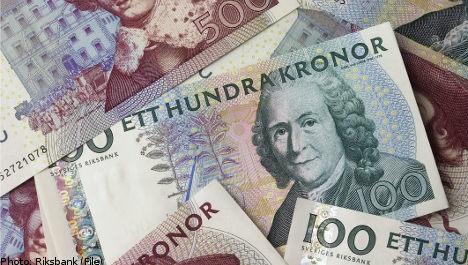“Despite headwinds from the eurozone, Sweden’s track record of sound monetary, fiscal management and high level of national savings leaves it well placed to cope with increased macroeconomic risks,” Fitch said in a statement.
The ratings agency hailed “effective implementation of expenditure ceilings and prudence over government budget targets,” which it said allowed Stockholm to reduce its general government debt to 38.4 percent of gross domestic product last year from a peak of 78 percent of GDP in 1993.
“Fitch expects Sweden to meet its 2012 target of a moderate 0.3 percent of GDP (public) deficit, and move into surplus over the medium term,” it said, adding that it anticipated Sweden would see 1.2 percent economic growth this year and 2.0 percent in 2013.
While stressing the Scandinavian country’s economy was sound, Fitch did caution that “severe intensification of the eurozone crisis could cause contagion to the Swedish economy and exert negative pressure on the rating.
“A build-up of macroeconomic imbalances in Sweden, most likely through an asset price bubble,” was the biggest threat to its economic and financial stability, it said.
Sweden is a member of the European Union but not of the 17-nation eurozone.



 Please whitelist us to continue reading.
Please whitelist us to continue reading.
Member comments